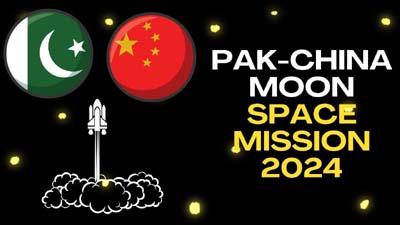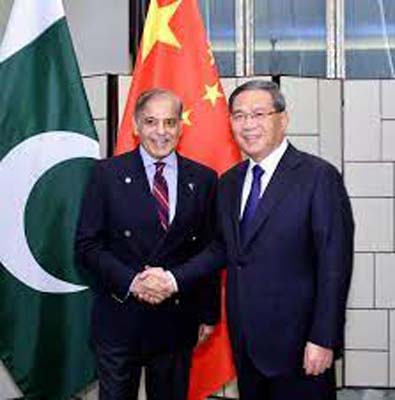
China, Pakistan fly together to the Moon
Celina Ali
Islamabad: Pakistan this week launched its first-ever lunar mission iCube-Q aboard China’s unmanned Chang’e 6 probe from the Chinese city of Hainan.
The iCUBE-Q, or CubeSats, was launched at around 5:27 p.m. China time (0927GMT) from the Wenchang Space Launch Site, aboard Chang’e-6 mission which blasted off into space on the Long March5 Y8 rocket.
Pakistan’s top diplomat in Beijing Khalil Hashmi confirmed on X that the launch was “successful.”

It will be “deployed in Moon orbit on 8 May,” said Hashmi, who attended the launch ceremony in Hainan.
The iCUBE-Q orbiter carries two optical cameras to image the lunar surface.
Pakistan’s Institute of Space Technology, in collaboration with China’s Shanghai University and Pakistan national space agency SUPARCO, jointly developed the iCUBE-Q.

The primary purpose of CubeSats is to facilitate scientific research, technology development, and educational initiatives in space exploration.
According to China National Space Administration, Chang’e 6 probe will collect samples from the far side of the moon, making the mission the first of its kind in human history.
The Chang’e-6 spacecraft, like its predecessor Chang’e-5, comprises an orbiter, a lander, an ascender and a returner. The Chang’e-5 was returned to earth in December 2020 with first lunar soil samples in over four decades.
“After it reaches the Moon, it will make a soft landing on the far side. Within 48 hours after landing, a robotic arm will be extended to scoop rocks and soil from the lunar surface, and a drill will bore into the ground. Scientific detection work will be carried out simultaneously,” Xinhua News reported.
After collecting samples, the unmanned spacecraft will return to Earth, landing in north China’s Inner Mongolia autonomous region. The entire flight is likely to take 53 days.
Ahead of the launch, some 50 officials from 12 countries including Pakistan, France, Italy, UN and the European Space Agency, attended a conference in Hainan about the space and possible cooperation among different nations.
The guests later gathered in Haikou to witness the launch of Chang’e-6 lunar probe.
Besides CubeSat from Pakistan, the Chang’e-6 mission also carries a number of other international payloads to the moon, including the European Space Agency’s lunar surface ion analyzer, France’s radon detection instrument, Italy’s laser corner reflector.
Pakistan’s President Asif Ali Zardari and Prime Minister Shehbaz Sharif congratulated the nation and scientists for launching the first lunar orbit mission.
